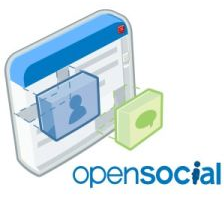OpenSocial should be renamed "OpenGadgets"


In a guest column for CNet, aptly titled 'Waiting for the OpenSocial hammer to drop', Canter writes:
As MySpace.com, Friendster, Bebo, LinkedIn, Oracle, Salesforce.com, Plaxo, and many others lined up to support OpenSocial, we all became almost giddy in our excitement. The anticipation was for a world where users could move their data anywhere they wished and vendors allowed this all to happen.
Canter goes onto say that OpenSocial was announced far too early, in part to upstage Facebook's new ad-platform unveiling (Google is in the advertising business after all). Many of the "technical details and logistics (issues like security)" were yet to be thought threw, but worst of all, in Canter's eyes, much of the tech-community and press have been duped:
And worst of all, many--if not all--of the OpenSocial participants did not intend to open up their networks at all. They simply wished to bring in as many OpenSocial "gadgets" as possible in an attempt to counterstrike Facebook's successful platform of applications.
And then, the knock-out punch:
For all its promises, OpenSocial really only appears to be "OpenGadgets."
During a panel at LeWeb 3 (see this video), Google's own Patrick Chanezon, appeared to add weight to Canter's theory, saying that the search giant "would help to provide a "testing lab" for OpenSocial gadget interoperability testing."
But another of Patrick's comments previewed what the battlefield in the upcoming war over open social networking might look like. He suggested it will be up to each social-network software vendor to decide whether to allow access and control over their members' profile data.
Canter says that it's since become clear that MySpace has no intention of opening up in this way, and calls for Bebo, Friendster, and Hi5 to say how they intend to "approach this touchy subject."
Canter also joins with my own cynicism towards the recent announcements by Google, Facebook, Plaxo etc. that they now have representatives on DataPortability.org, unconvinced that the group won't turn into a Wiki/mailing list talking shop.
Finally, Canter concludes:
Why all this sudden interest and concern over open social networking? Has its day come? Is it time that users will be able to freely move their data between social networks? We all hope that MySpace, Bebo, and others will open up and go beyond the original scope of OpenSocial to lay the groundwork for a truly open world of social networking.
But I wouldn't hold my breath.
I'm not holding mine either.
However, while Canter's suspicion towards OpenSocial appears well founded, I've yet to hear him put forward a compelling business case for true social network data portability -- not for the 10% of social networking sites that make up the "others" in this space, but for the large incumbents: MySpace, Facebook and, to a lesser extent, Google.